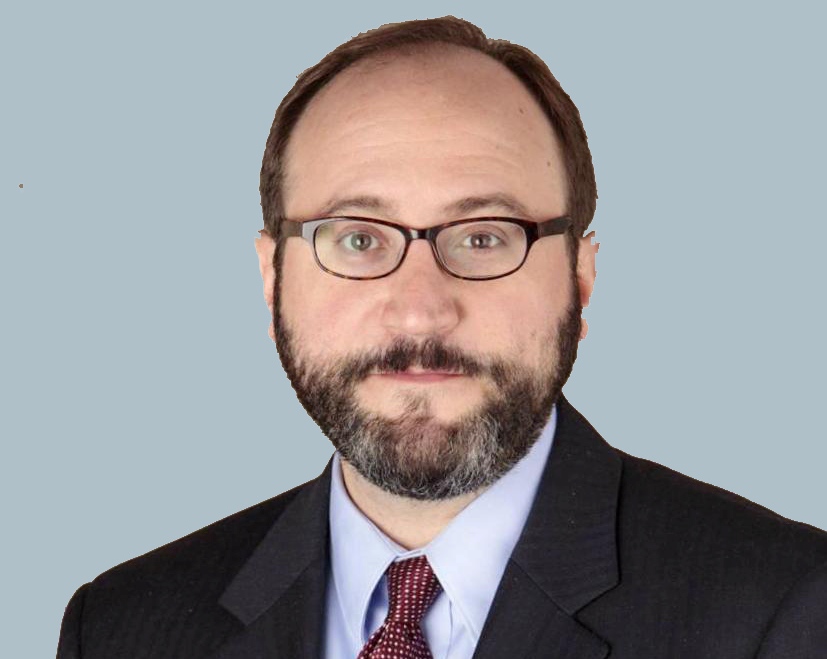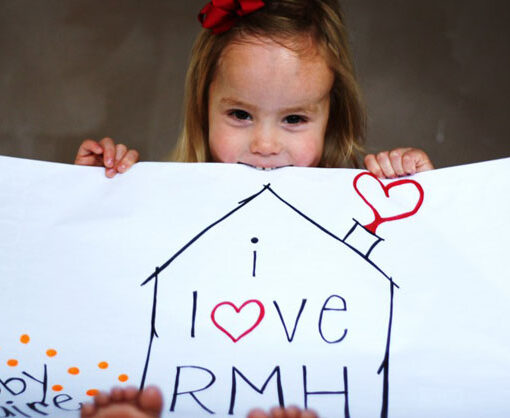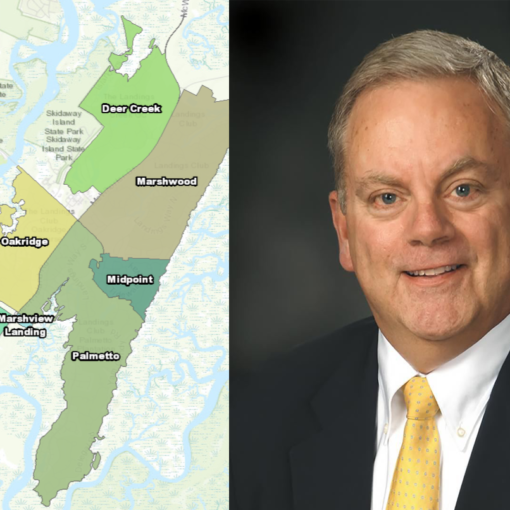Hamiltons Meeting Summary
Judge Benjamin W. Karpf, Chatham County Superior Court
Challenges Presented by COVID for Chatham County Superior Court
On October 12, 2021, Judge Benjamin Karpf addressed the Hamiltons and Abigails via Zoom on the topic “Challenges Presented by COVID for Chatham County Superior Court.”
Judge Karpf pointed out that there are six Superior Court judges and Superior Court is the only county court that conducts felony criminal and civil jury trials and exclusively handles domestic relations like divorces, child custody cases, injunctions, restrictive orders, or disputes over equity or title to land. In addition, Chatham County has separate courts for Juvenile cases (offenders under 17), a State court that handles misdemeanors like DUI and civil damages, and non-trial courts including Magistrate court (which hears eviction claims) and Probate court (primarily for estates). But the primary court for trials is the Superior court.
On March 14, 2020, the Chief Justice of the Georgia Supreme Court ordered all Georgia courts to discontinue holding in-person trials due to the coronavirus pandemic. For Superior court, this meant that no felony or civil trials would be held for more than a year. Because it was impossible to hold in-person trials, a backlog of court cases built up, primarily made up of violent crime cases that did not lend themselves to plea deals. And there was little incentive for defendants to reach deals because no trial was likely for a considerable time.
However, “the courts never closed.” But they had to figure out a way to at least hold essential hearings. At first, these were primarily bond hearings, hearings on restrictive orders and initial appearance hearings. At the beginning, the court relied on a simple video cart for remote connections with one Superior Court judge at the courthouse at a time along with attorneys and the participants spaced for safety with the accused joining via video link from the jailhouse. They went to Zoom and eventually to Cisco WebEx, but these remote hearings required interpretations of what the court rules and the US Constitution allowed. The Sixth Amendment guarantees the right to a “speedy and public trial by jury” and “to be confronted by witnesses against him/her.” With the COVID threat, no public jury trials could take place, so what could they do? The “public” portion was solved by live-streaming proceedings on the county court’s website. But they still needed to have the judge, jury, and participants in one room in order to have a proper trial.
But all the other hearings managed to switch to remote hearings and these were accomplished. However, there were some challenges with getting all participants on live video. Some of the things the judges observed during remote hearings on Zoom: People driving, smoking (cigarettes or marijuana), shopping, or in bed. Naked people, people in pajamas, shirtless people. People shopping online, taking phone calls, playing video games, and watching TV. In one case involving a surgeon, the doctor was in the operating room working on a patient during the hearing. In another case, the defendant was obviously in the same house as the crime’s victim. The decorum associated with being in a formal courtroom surrounded by deputies was clearly not always present.
The Chief Justice of Georgia Supreme Court opened the way for live trials in March of 2021. The first trial the Judge conducted after the COVID shutdown of trials was in April of 2021, and Hamiltons Board member Martin Halper was on that jury and served as jury foreperson. By this time, the courtrooms had been reorganized to allow for more spacing between the participants with plexiglass partitions between the tables and the Judge’s bench (the Judge showed photos). All participants were masked except for the particular witness who was testifying. An adjacent courtroom served as the jury room because the usual jury rooms were too small to allow for proper spacing and jury selection was slower due to the limited number of people who could safely occupy the courtroom at one time.
Since then, the Judge has completed eight trials this year to date and Judge Womsley has conducted a similar number and a few of the other judges have conducted a trial or two. And as trials are scheduled, quite a few other cases have been resolved. The judges hope to be on a full trial schedule again by January of 2022 if the COVID numbers allow that, but a substantial backlog of trials will remain.
Q&A
Q: Jury availability: Are a lot of people avoiding jury summons due to the COVID crisis?
A: Has not been as much of a problem as judges anticipated. Partly because slower rate of trials (around 2 per week compared to around 5 during non-COVID times) reduces need for as many jurors. And they screen incoming potential jurors to reduce infection risk. None of the Judge’s trials so far lacked a sufficient number of jurors.
Q: Has sentencing discretion been used in light of the infection rate in jails?
A: Mostly discretion applies to granting bond before trial. Georgia has pretty severe mandatory minimum sentences for violent crimes and Judge must honor those minimums. Plea bargain negotiations may involve more flexibility by District Attorney in light of the COVID situation in jails. Bond flexibility has helped reduce the County’s jail population, primarily on the misdemeanor side not handled by Superior Court.
Q: Do you really expect to catch up by January? And how has this affected your budget?
A: No, no way will they be caught up by then. It will take years to catch up. Budget from the County and State remains the same but Federal money will be available to help with additional expenses to alter procedures due to the pandemic and build additional infrastructure to have more courtrooms. But budget for retired judges to occasionally hear cases was cut and they need more of that now, not less.
Q: Are there changes that have been made that will remain after the COVID crisis ends?
A: In-person domestic violence hearings about protective order requests used to happen on a “find an available judge” basis, but with remote video hearings now possible, the complainant can participate directly from a safe shelter in an ex partei (only one side present) hearing without coming to the Courthouse. Routine initial hearings are possible remotely at the Chatham County Jail on Chatham Parkway that significantly reduces the transportation of people between the jail and the Chatham County Courthouse downtown.
Q: Regarding the mass incarceration issue, what is your feeling on alternatives to jail for nonviolent offenders?
A: This is a big topic including bond and alternatives to jail. Chatham County has never been a place that sets prohibitively high bonds. But the county has no pre-trial and supervised release program and the Federal money may help establish this. On the larger question of mass incarceration disproportionately affecting minorities and people of color, the Superior Court sees offenders charged with very serious crimes, and that is not where the problem needs to be solved. Instead, the problems that must be attacked are the underlying reasons for the many arrests, which are poverty and lack of basic social services like mental health care.
Q: Judge Karpf freed some people who had been incarcerated for over 400 days pre-trial – is that true?
A: Judge did have some people awaiting trial that long and the first two trials he condoucted involved people who waited a long time for trial plus scheduling some other trials resulted in plea deals for some others who had been in jail for quite a while. But really the only way to address the issue of people waiting a long time for trial is to schedule and conduct trials. He has granted some bonds and plea deals that he might not have granted due to the pandemic and these decisions are the hardest part of his job.





